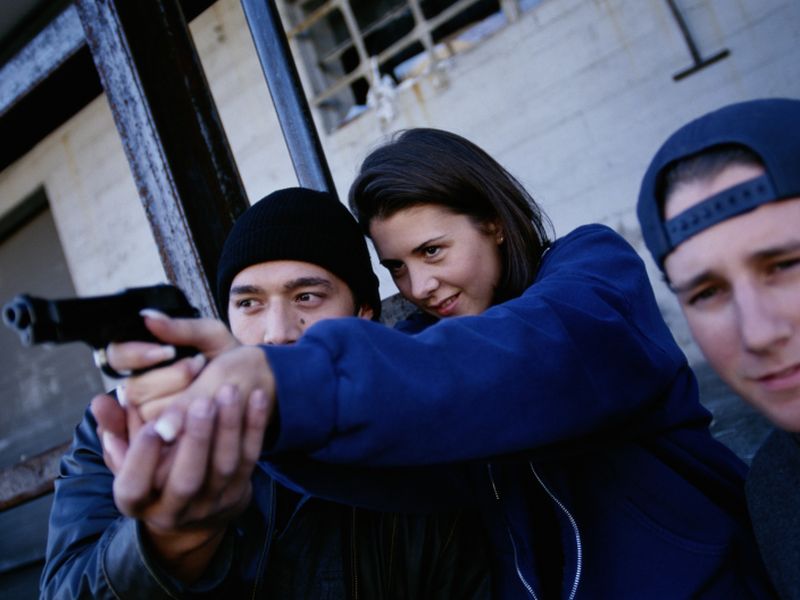
To predict someone’s risk of becoming a victim of gun violence, a new study offers a suggestion: Look at the company they keep.
Researchers report that gun violence may actually be “contagious,” with social networks acting as a breeding ground for the spread of gun exposure and violence.
“Those at the highest risk of gun violence are the individuals with the most associates who have recently been shot,” said study author Ben Green, a doctoral candidate at Harvard Law School, in Cambridge, Mass.
But that risk is also a function of timing and the nature of the relationships, Green added.
“When someone gets shot, his influence on [his] associates decreases over time,” he explained.
“Additionally, the strength of the contagion risk depends on how close one’s relationship is with that person. For example, a friend being shot creates more risk for you than does a friend of a friend,” Green said. “So, the set of individuals at highest risk changes over time, as gun violence spreads over the [social] network.”
However, the study did not prove definitively that gun violence is “contagious.”
While an average of more than 200 Americans end up shot each day, gun violence is not evenly spread across the country, the researchers noted. Most shootings take place in poor, urban neighborhoods. And gun fatalities are roughly 10 times higher among young black men than among their white peers.
The research team set out to see whether gun violence is contagious based on the beliefs, attitudes and behaviors of one’s immediate network of friends and peers.
The investigators focused on more than 138,000 Chicago residents who had been arrested at some point between 2006 and 2014.
More than 80 percent were male, and three-quarters were black, with an average age of 27, the findings showed. Roughly one-quarter included members of a gang, and just shy of 10,000 were involved in more than 11,000 incidents of gun violence.
Almost 18 percent of people who had a close friend who had been shot were themselves victims of gun violence, the researchers revealed.
The study authors concluded that 63 percent of the 11,000-plus incidents of both fatal and non-fatal gun violence could clearly be attributed to aspects of a “social contagion.”
For example, on average, individuals ended up being shot just 125 days after the shooting of their friend or peer who had been most directly associated with gun violence.
But study co-author Andrew Papachristos, an associate professor in the department of sociology at Yale University, in New Haven, Conn., noted that the impact of social networks on gun violence risk isn’t just about whether friends are shot, but also on their level of access to guns, whether or not they carry a gun, and/or whether they are involved in the kind of risky behavior that might involve guns.
Still, the research team found that the most accurate way to predict any individual’s personal risk for gun violence was actually by looking at both who they had been hanging out with and where that individual lived.
Papachristos noted that “such data analytics can, and should, be used to direct services to those at most immediate risk to reduce the trauma associated with gun violence, to potentially stop the ‘spread’ of gun violence victimization, and to help address the epidemic more broadly.”
That point was strongly seconded by Charles Branas, author of an editorial that accompanied the study. He is a professor of epidemiology in the department of biostatistics and epidemiology with the Perelman School of Medicine at the University of Pennsylvania, in Philadelphia.
“We have now successfully used [computer] models that have been applied to diseases like measles or Ebola for decades to better understand gun violence,” he noted.
Ultimately, such an approach could help public health officials craft “some very inexpensive and straightforward interventions” that focus on how and why gun violence moves not just from person-to-person, but also from group-to-group and place-to-place.
The findings were published online Jan. 3 in the journal JAMA Internal Medicine.
More information
There’s more on gun violence prevention at the American Psychological Association.
Source: HealthDay

Leave a Reply